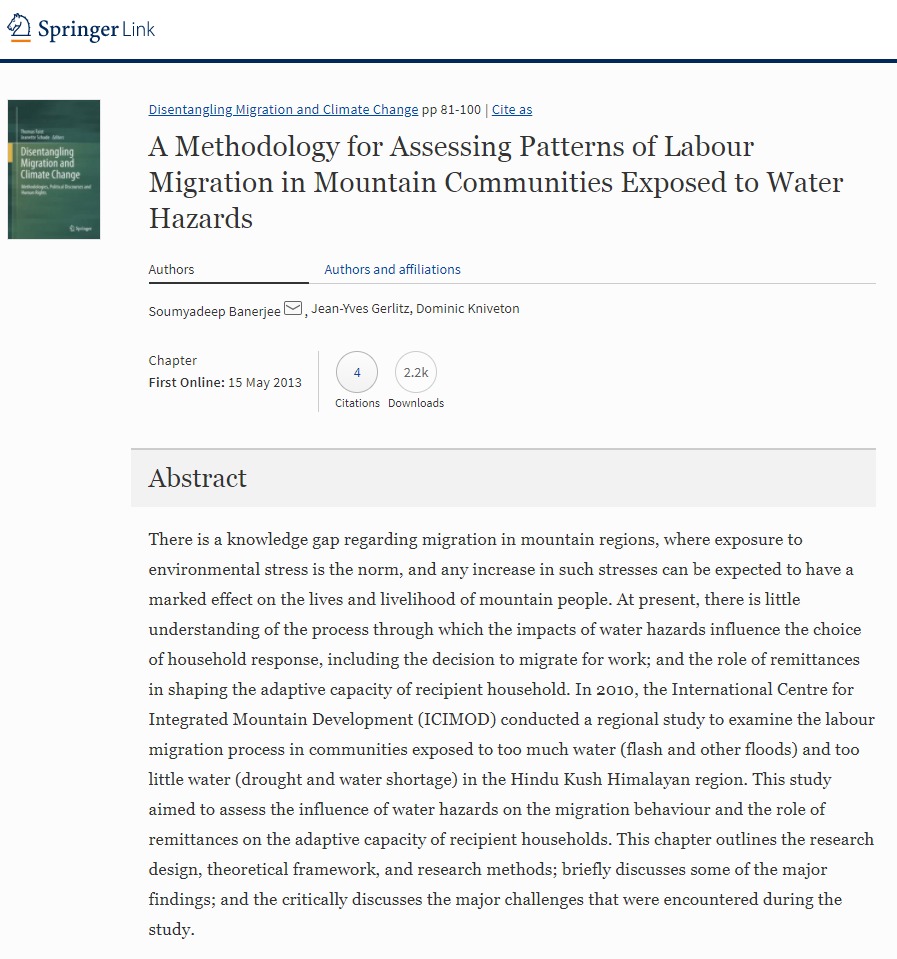
There is a knowledge gap regarding migration in mountain regions, where exposure to environmental stress is the norm, and any increase in such stresses can be expected to have a marked effect on the lives and livelihood of mountain people. At present, there is little understanding of the process through which the impacts of water hazards influence the choice of household response, including the decision to migrate for work; and the role of remittances in shaping the adaptive capacity of recipient household. In 2010, the International Centre for Integrated Mountain Development (ICIMOD) conducted a regional study to examine the labour migration process in communities exposed to too much water (flash and other floods) and too little water (drought and water shortage) in the Hindu Kush Himalayan region. This study aimed to assess the influence of water hazards on the migration behaviour and the role of remittances on the adaptive capacity of recipient households. This chapter outlines the research design, theoretical framework, and research methods; briefly discusses some of the major findings; and the critically discusses the major challenges that were encountered during the study.